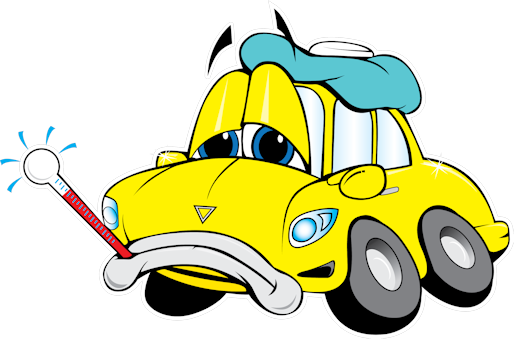

Mobile users:
For best results, view in Landscape mode.

Strange Odors -
Burning Plastic:
Short circuit in the electrical system.
Sweet Smelling Odor:
Indicates a coolant leak.
If the temperature gauge or warning light doesn't indicate
overheating, drive carefully to the nearest service station,
keeping an eye on your gauges.
If the odor is accompanied by a hot, metallic scent and
steam from under the hood, your engine has overheated.
Pull over immediately.
Continued driving could cause severe engine damage.
Your car should be towed for repair.
Gas Odor inside your Car:
Leaking or disconnected fuel line, defective evaporation
control canister.
Open the windows open and turn the fan on high to the
fresh-air position.
Burning Rubber:
Rubber hose touching a hot engine, hot tire due to
locked brake shoe.
The smell of burned toast:
Usually signals an electrical short
and burning insulation.
Burning Oil:
Leaking oil on hot engine parts, low engine-oil level,
transmission overheating (low transmission-fluid level).
Smell of Rotten Eggs:
This usually indicates a problem in the catalytic converter
or other emission control devices.
Exhaust Odor Inside Car:
Leak in exhaust pipe under the passenger compartment.
Open the windows open and turn the fan on high to
the fresh-air position.
These toxic fumes are extremely dangerous.
If you experience any of these,
check with your mechanic for
professional advice or service.
Exhaust Smoke -
Freshly started cars may emit some white smoke
as condensed water vapor in the exhaust system
is burned off.
If the white smoke continues after your car warms up,
it could indicate an internal coolant leak.
White and Grey smoke may indicate a blown head gasket,
a cracked or warped cylinder head, or a cracked
engine block.
Grey color indicates possibly the transmission fluid is burning.
If excessive oil enters the combustion chamber, a blue gray
colored exhaust will result.
Blue smoke may indicate the piston rings are faulty
and has allowed oil to move from lubricating engine
parts.
Black smoke can indicate either an ignition or fuel-system
problem.
The engine could be flooded with gas.
If you experience any of these,
check with your mechanic for
professional advice or service.
Strange Sounds -
Strange noises are often an early warning sign.
Listen to them closely and you may avoid costly repairs.
Here are some common sounds and their meanings:
Clicking Sound:
(a rhythmic tapping, similar to the click of a retractable ballpoint pen)
Loose hubcap; defective wheel bearing; bent or loose fan blade;
low engine-oil level; outer CV joints beginning to fail.
Squealing Sound:
(high-pitched whine, as if something is tearing)
Under-inflated tires, misaligned wheels, or serpentine belt.
Knocking:
(a pounding or banging, as though two objects hit together)
Light knocking or "pinging" - fuel octane may be too low.
Check your Owner's Manual or mechanic
for recommended octane level.
Heavy knocking could indicate a bad connecting rod or worn
crankshaft main bearing.
Clunking Sound:
(a dull banging or thump, as if something were being dropped)
Defective universal joint or rear differential;
low transmission fluid; motor mounts.
Low Pitch Metallic Thumping:
Loose exhaust pipe; worn crankshaft bearing.
Screeching or Squeak:
(scraping metallic sound, often continuous)
Worn brake pads or other brake problems.
If you experience any of these,
check with your mechanic for
professional advice or service.
Drops or Puddles -
Green:
Green or yellow oily fluid is coolant.
This leak could be caused by a bad water pump or a leak
in either the radiator or a hose.
Dark:
A dark spot usually indicates your engine is leaking oil
and needs repair.
Amber:
Power-steering fluid is amber.
It may indicate a leak in the power-stealing hose or pump.
Red:
Transmission fluid is red.
Red spots may indicate that either front or rear
automatic-transmission seals need replacing.
Clear but Oily:
An oily liquid with little color but a strong odor could be
brake fluid.
Clear Water:
Clear water is no need for concern.
It's probably normal condensation from your air conditioner.
Be sure to tell your mechanic the
location of the leak, how much leaked,
the color, and when you noticed
the leak.
Disclaimer:
While we attempt to insure these
tips and information is complete
and accurate, these tips are merely
a recommendation to help save
you time, money and to stay safe
on the road.
Check with your mechanic for
professional advice or service.

